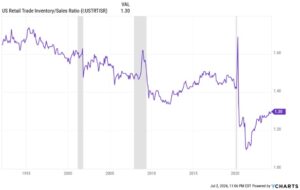
I Did It!
On Saturday, I gave my presentation on “the seven natural laws of wealth building” to an audience of about 1,000 plus another 700 watching the live stream. I won’t grade my performance. Everyone I spoke to later was highly complimentary, but in my experience the Japanese are always complimentary, so I won’t present that as evidentiary.
What I can tell you is that the way my Japanese partners and the hotel staff treated me was absurdly flattering. Throughout the day, I was escorted by at least a half-dozen people who took me through hidden hallways and back staircases and into various “green rooms” and then eventually onto the various stages and platforms I was speaking from – all done, apparently, to “protect me” from my “fans.”
I’m not kidding.
After my three-hour keynote speech, I spent another two hours doing interviews, and then two full hours with 120 individual ticket holders who had paid some crazy additional sum of money to have their photos taken with me and Sean (who runs the business my family has with the Japanese). And after that, there was a cocktail party, where Sean and I separately (each with our own simultaneous translator) visited 11 or 12 tables of about six to eight people each and were given seven minutes to answer their questions before a handler dragged us and our translators to another table.
The next day was devoted to 20 of the 120 who had paid $5,000 each to spend the day with us and listen to our ideas about business, entrepreneurship, and wealth-building. They all had questions, and I had been asked to spend 20 minutes on answering each one. At 20 people times 20 minutes, it took about seven hours.
It was exhausting but energizing, because almost all of the 20 were successful or promising business owners and professionals and the questions were good. They not only asked about business, investing, retirement, and estate planning (which I had expected), but also about American politics, geopolitics, macroeconomics, currencies, cryptocurrencies, real estate investing, art collecting, personal productivity, physical fitness, sleeping habits, child rearing… and I can’t remember what else.
The next day (Monday for me, Sunday for you), I spent another six hours with a different group of people – 100 members of a private wealth education club I had started 14 years ago in the USA, which was now in its second year in Japan. That was an entirely different experience because the crowd was considerably younger and their interests were more in the realm of entrepreneurship and business management.
The final two hours, which could have been a disaster, turned out to be the highlight of the three days, both for me and, I think, the 100 members of the club. My challenge was to answer all of their questions in the 120 minutes we had left after my presentation – which meant that even if each person limited their questioning to 30 seconds, I would have only 30 seconds to respond.
Well, they did, for the most part, limit their questioning to 30 seconds or less, and I was able to answer them in an average of 30 seconds. Which was, as surprising as it may sound, completely fun and exciting.
After one final dinner with my partner, his family, and Miki, my ever-present and super-considerate translator, I was back to the hotel at 10:30 and asleep by 10:45.
That’s the quick recap. There’s a whole lot of other things that happened and lots of interesting thoughts I’ve had about Japan, its culture, and how Americans can profit from it. I’ll tell you more about all that in the coming weeks.







